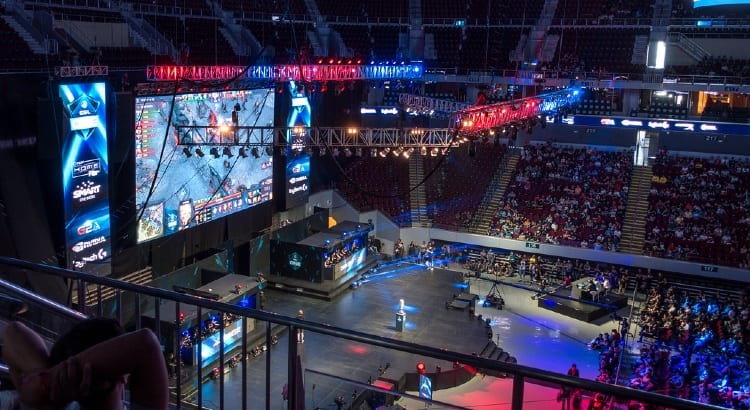The Olympics are something special. It’s not every day we see such an enthusiasm around sports. It’s almost like the Olympics make sports more interesting. You watch any athletics competition and we guarantee it’s not going to be as interesting as athletics when they’re in the Olympics.
The Olympic games of 1896 were a small gathering compared to the colossal event they’ve become. Only men were allowed to compete, 241 of them from 14 countries, fighting for 43 gold medals in just ten sports. Fast forward to 2021, and Tokyo witnessed an explosion of talent, hosting a staggering 11,479 athletes from 206 nations. The organizers in Japan have been behind the biggest expansion of the games since 1920. With that being said, the Olympics are open to adding new disciplines like three-a-side basketball and BMX freestyle. So, the big questions is, how close are esports to becoming an Olympic sport. Wait, computer games in the Olympics? It might sound far-fetched, we admit. But hear us out. It’s not just “computer games”. Esports is a global phenomenon, pulling in billions of dollars and attracting a massive, passionate following.
are now full-fledged professionals, with salaries that rival those of traditional sports stars. Or better to say, exceed most. Teams have dedicated coaches, analysts, and even psychologists. Tournaments are broadcast on major networks, with elaborate stages and production values that make the Super Bowl look like a high school play. So, what’s behind this meteoric rise? It’s a perfect storm of factors. Advancements in technology have made games more visually stunning and accessible than ever before. Streaming platforms like Twitch have given players a global stage to showcase their skills and connect with fans. And brands, realizing the immense potential of this audience, have poured money into sponsorships and advertising deals. The momentum is undeniable.
How Does This Fit the Olympics?
Well, since the Olympics are about the spirit rather than the sport, esports fit the narrative perfectly. And the International Olympic Committee has already shown an openness to exploring this idea by hosting an esports demonstrations alongside the Olympics, while the 2024 Paris Games will feature esports exhibitions. We see it as an important first step.
Of course, this is not without hurdles. Some argue that esports might be too “young” for the Olympics. Others say it’s not physical enough. But that’s not a very valid argument. After all, chess is an Olympic sport, and it demands mental acuity rather than physical strength. Esports requires incredible hand-eye coordination, strategic thinking, and the ability to perform under immense pressure. It’s a different kind of athleticism, but athleticism nonetheless. Another challenge lies in the ever-changing nature of esports. Games come and go, and what’s popular today might be obsolete in a few years. This presents a logistical headache for Olympic organizers who value stability and consistency.
Despite these hurdles, there’s a growing sense that esports is on a trajectory to become a part of the Olympic family. The young generation is already hooked, and as esports continues to professionalize and gain mainstream acceptance, it’s hard to ignore its potential.
Some Concerns Exist, But The Future is Promising
Now, of course, it’s easy to overlook the human element here. The most obvious concern is the physical toll esports can have on athletes. Hours spent hunched over a keyboard or controller can lead to repetitive stress injuries, back problems, eye strain, and even carpal tunnel syndrome. These issues might not be as visible as a sprained ankle, but they’re no less serious in the long run. Then there’s the mental health aspect. Luckily, there’s already a good case study from the online casino industry, where these platforms have spent significant time investing in safe casino games as well as in player safety and responsible gaming. There are many mechanisms worth considering and implementing. Many teams and organizations are already prioritizing player health and wellness, implementing training programs that address physical and mental health concerns. But with all in mind, we believe esports, despite being a young scene, might be ready for the Olympics in the very near future.

